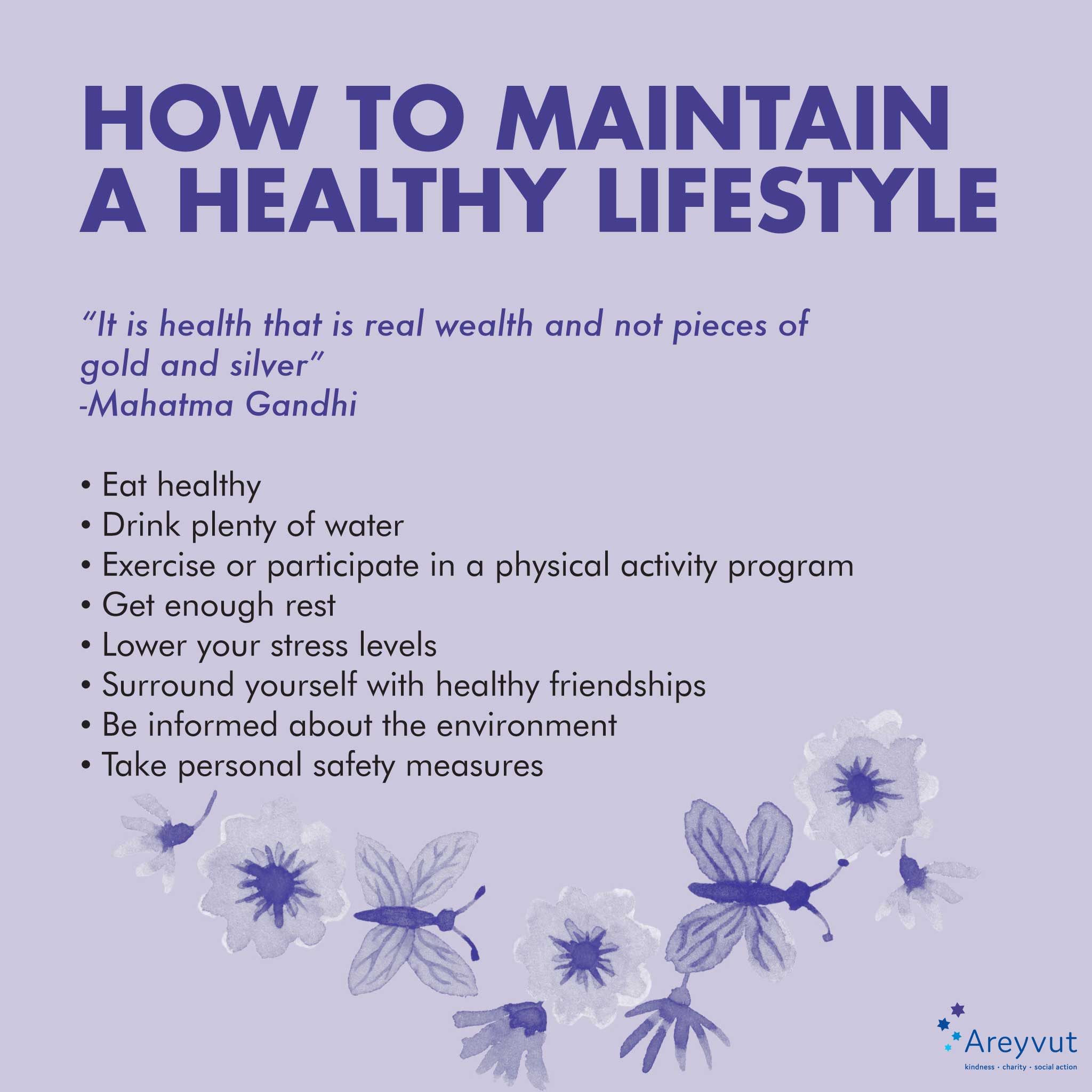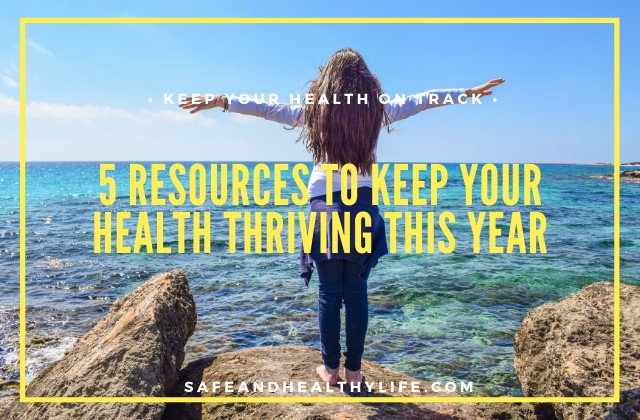“The Ultimate Guide to a Thriving, Healthy Lifestyle
With excitement, let’s uncover the fascinating topic of The Ultimate Guide to a Thriving, Healthy Lifestyle. Let’s weave together engaging insights and offer a fresh perspective to our readers.
About Video The Ultimate Guide to a Thriving, Healthy Lifestyle
The Ultimate Guide to a Thriving, Healthy Lifestyle

In a world that often prioritizes speed and convenience, the concept of a healthy lifestyle can sometimes feel like a distant dream. Yet, the truth is that embracing a healthy lifestyle is not about making drastic, overnight changes. It’s about cultivating a series of small, sustainable habits that, over time, add up to a significant improvement in your overall well-being.
This guide will walk you through a range of practical tips and strategies to help you create a healthier, happier, and more fulfilling life.
1. Nourish Your Body with Whole Foods
The cornerstone of any healthy lifestyle is a well-balanced diet that prioritizes whole, unprocessed foods. These are foods that are as close to their natural state as possible.
- Fruits and Vegetables: Aim to fill half your plate with a colorful variety of fruits and vegetables at each meal. They are packed with vitamins, minerals, antioxidants, and fiber, all essential for optimal health.
- Lean Protein: Include sources of lean protein such as chicken, fish, beans, lentils, tofu, and eggs in your diet. Protein is crucial for building and repairing tissues, supporting immune function, and promoting satiety.
- Whole Grains: Choose whole grains like brown rice, quinoa, oats, and whole-wheat bread over refined grains like white rice and white bread. Whole grains are rich in fiber, which aids digestion and helps regulate blood sugar levels.
- Healthy Fats: Incorporate sources of healthy fats like avocados, nuts, seeds, olive oil, and fatty fish (salmon, tuna) into your diet. Healthy fats are important for brain function, hormone production, and nutrient absorption.

2. Hydrate Adequately
Water is essential for life, and staying adequately hydrated is crucial for maintaining optimal health. Water helps regulate body temperature, transport nutrients, flush out toxins, and lubricate joints.
- Drink Enough Water: Aim to drink at least 8 glasses (64 ounces) of water per day. You may need more if you are physically active or live in a hot climate.
- Listen to Your Body: Pay attention to your thirst cues and drink water when you feel thirsty.
- Hydrating Foods: Include hydrating foods like watermelon, cucumbers, and spinach in your diet.
- Limit Sugary Drinks: Avoid sugary drinks like soda, juice, and sweetened beverages, as they can contribute to weight gain and other health problems.

3. Prioritize Regular Physical Activity
Exercise is not just about losing weight; it’s about improving your overall health and well-being. Regular physical activity can help:

- Boost Your Mood: Exercise releases endorphins, which have mood-boosting effects.
- Strengthen Your Bones and Muscles: Weight-bearing exercises like walking, running, and weightlifting can help improve bone density and muscle strength.
- Reduce Your Risk of Chronic Diseases: Regular exercise can help reduce your risk of heart disease, stroke, type 2 diabetes, and certain types of cancer.
- Improve Your Sleep: Exercise can help you fall asleep faster and sleep more soundly.
4. Get Enough Sleep
Sleep is a fundamental need, just like food and water. When you sleep, your body repairs itself, consolidates memories, and prepares for the day ahead.
- Aim for 7-9 Hours: Most adults need between 7 and 9 hours of sleep per night.
- Establish a Regular Sleep Schedule: Go to bed and wake up at the same time each day, even on weekends, to regulate your body’s natural sleep-wake cycle.
- Create a Relaxing Bedtime Routine: Wind down before bed with relaxing activities like reading, taking a warm bath, or listening to calming music.
- Optimize Your Sleep Environment: Make sure your bedroom is dark, quiet, and cool.
5. Manage Stress Effectively
Chronic stress can take a toll on your physical and mental health. Finding healthy ways to manage stress is essential for a healthy lifestyle.
- Identify Your Stressors: What situations or events trigger stress for you? Once you know your stressors, you can develop strategies to cope with them.
- Practice Relaxation Techniques: Techniques like deep breathing, meditation, yoga, and progressive muscle relaxation can help calm your mind and body.
- Connect with Others: Spend time with friends and family, join a social group, or volunteer in your community. Social connection can help buffer the effects of stress.
- Engage in Hobbies: Make time for activities you enjoy, such as reading, gardening, painting, or playing music.
6. Limit Alcohol Consumption
Excessive alcohol consumption can lead to a variety of health problems, including liver damage, heart disease, and certain types of cancer. If you choose to drink alcohol, do so in moderation.
- Moderate Consumption: For women, moderate drinking is defined as one drink per day. For men, it’s defined as two drinks per day.
- Be Aware of Serving Sizes: A standard drink is defined as 12 ounces of beer, 5 ounces of wine, or 1.5 ounces of distilled spirits.
- Avoid Binge Drinking: Binge drinking is defined as consuming four or more drinks for women or five or more drinks for men in a short period of time.
7. Quit Smoking
Smoking is one of the leading causes of preventable death worldwide. If you smoke, quitting is the single best thing you can do for your health.
- Seek Support: Talk to your doctor about smoking cessation programs and medications that can help you quit.
- Set a Quit Date: Choose a date to quit smoking and stick to it.
- Avoid Triggers: Identify situations or events that trigger your desire to smoke and avoid them.
- Stay Active: Exercise can help reduce cravings and withdrawal symptoms.
8. Practice Mindfulness
Mindfulness is the practice of paying attention to the present moment without judgment. It can help you become more aware of your thoughts, feelings, and sensations, and it can help you reduce stress and improve your overall well-being.
- Meditation: Meditation is a popular mindfulness practice that involves focusing your attention on your breath, a sound, or a mantra.
- Mindful Walking: Pay attention to the sensations of your feet on the ground as you walk.
- Mindful Eating: Savor each bite of food and pay attention to the flavors and textures.
9. Cultivate Positive Relationships
Strong social connections are essential for mental and emotional well-being. Nurture your relationships with family, friends, and colleagues.
- Spend Quality Time Together: Make time for meaningful interactions with the people you care about.
- Communicate Openly and Honestly: Share your thoughts and feelings with others, and listen to their perspectives.
- Show Appreciation: Let the people in your life know that you appreciate them.
- Set Boundaries: It’s important to set boundaries in your relationships to protect your own well-being.
10. Learn Something New Every Day
Lifelong learning can help keep your mind sharp and engaged.
- Read Books and Articles: Expand your knowledge by reading about topics that interest you.
- Take a Class: Learn a new skill or pursue a hobby.
- Attend Lectures and Workshops: Listen to experts and learn from others.
- Travel: Explore new cultures and learn about different ways of life.
11. Practice Gratitude
Gratitude is the feeling of appreciation for the good things in your life. Practicing gratitude can help boost your mood, reduce stress, and improve your relationships.
- Keep a Gratitude Journal: Write down things you are grateful for each day.
- Express Gratitude to Others: Tell the people in your life that you appreciate them.
- Focus on the Positive: Even in difficult situations, try to find something to be grateful for.
12. Limit Screen Time
Excessive screen time can lead to eye strain, sleep problems, and other health issues. Set limits on your screen time and take breaks regularly.
- Set Time Limits: Use apps or settings on your devices to limit your screen time.
- Take Breaks: Every 20 minutes, look away from your screen and focus on something in the distance.
- Avoid Screens Before Bed: The blue light emitted from screens can interfere with your sleep.
- Engage in Other Activities: Find activities that don’t involve screens, such as reading, spending time outdoors, or socializing with friends.
13. Get Regular Checkups
Regular checkups with your doctor can help detect health problems early, when they are most treatable.
- Schedule Annual Physicals: See your doctor for a physical exam each year.
- Get Screenings: Follow your doctor’s recommendations for screenings for cancer, heart disease, and other conditions.
- Stay Up-to-Date on Vaccinations: Make sure you are up-to-date on your vaccinations.
14. Set Realistic Goals
When making lifestyle changes, it’s important to set realistic goals. Don’t try to change everything at once. Start with small, manageable changes and gradually build from there.
- Be Specific: Instead of saying "I want to eat healthier," say "I will eat one serving of vegetables with each meal."
- Make it Measurable: Track your progress so you can see how far you’ve come.
- Make it Achievable: Set goals that are challenging but realistic.
- Make it Relevant: Choose goals that are important to you.
- Make it Time-Bound: Set a deadline for achieving your goals.
15. Be Patient and Persistent
It takes time to develop healthy habits. Don’t get discouraged if you slip up occasionally. Just get back on track and keep moving forward.
- Focus on Progress, Not Perfection: No one is perfect. Don’t beat yourself up if you make mistakes.
- Celebrate Your Successes: Acknowledge and celebrate your accomplishments, no matter how small.
- Learn from Your Mistakes: Use your mistakes as opportunities to learn and grow.
- Be Kind to Yourself: Treat yourself with compassion and understanding.
16. Find What Works for You
There is no one-size-fits-all approach to a healthy lifestyle. Experiment with different strategies and find what works best for you.
- Listen to Your Body: Pay attention to how your body responds to different foods, activities, and stressors.
- Be Open to Change: Don’t be afraid to try new things.
- Seek Professional Guidance: If you’re struggling to make healthy changes on your own, consider seeking help from a doctor, registered dietitian, or other health professional.
- Make it Fun: Choose activities that you enjoy and that fit into your lifestyle.
Conclusion
Embracing a healthy lifestyle is a journey, not a destination. By incorporating these tips into your daily routine, you can improve your physical and mental health, boost your energy levels, and live a longer, more fulfilling life. Remember to be patient, persistent, and kind to yourself along the way. Your well-being is worth the effort.

